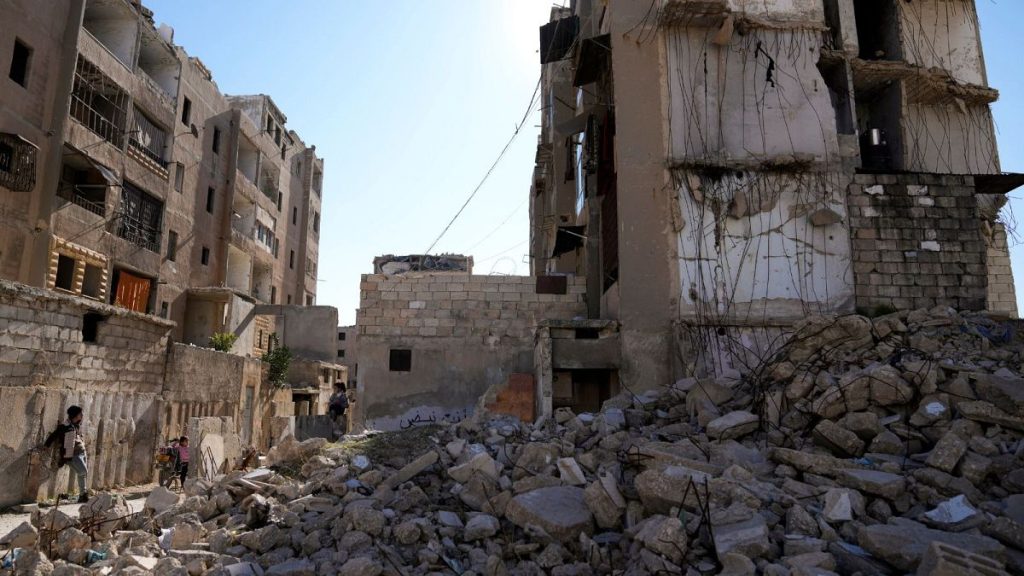The protracted Syrian conflict, particularly the battle for Aleppo, stands as a grim testament to the devastating consequences of unchecked authoritarianism and foreign intervention. For years, Syrian and Russian forces relentlessly bombarded Aleppo, Syria’s second-largest city, aiming to wrest it from rebel control and consolidate President Bashar al-Assad’s grip on power. This relentless campaign of aerial bombardment and ground offensives inflicted unimaginable suffering on the city’s inhabitants, reducing much of it to rubble and claiming hundreds of thousands of lives. The indiscriminate nature of the attacks, often targeting civilian infrastructure and residential areas, created a pervasive atmosphere of terror and desperation, forcing residents to endure constant fear for their lives and the lives of their loved ones. The siege of Aleppo, a particularly brutal chapter in the conflict, further exacerbated the humanitarian crisis, cutting off access to essential supplies and leaving the population trapped amidst the ruins.
The brutality of the Assad regime extended far beyond the battlefield. Countless individuals were arbitrarily detained and disappeared into a vast network of prisons operated by the regime’s security apparatus. Within these detention centers, systematic torture, extrajudicial executions, and inhumane conditions were rampant. Former detainees recount harrowing experiences of physical and psychological abuse, illustrating the regime’s utter disregard for human rights and due process. The pervasive fear of arbitrary arrest and detention created a climate of suspicion and self-censorship, effectively silencing dissent and eroding the fabric of Syrian society.
The fall of Aleppo marked a turning point in the Syrian conflict, symbolizing the Assad regime’s brutal effectiveness in crushing opposition and solidifying its control, albeit over a shattered nation. Russia’s military intervention played a decisive role in propping up Assad’s regime, providing crucial air support and ground troops that ultimately tipped the balance of power in the regime’s favor. The indiscriminate bombing campaigns carried out by Russian warplanes, often targeting hospitals, schools, and other civilian infrastructure, drew widespread international condemnation but ultimately failed to deter the Assad regime’s relentless pursuit of victory.
Beyond the immediate devastation of war, the Syrian conflict triggered a cascade of secondary crises that continue to plague the region. The collapse of the Syrian economy plunged millions into poverty, driving many to desperate measures to survive. Drug trafficking became rampant, further destabilizing the country and undermining efforts to rebuild. The mass displacement of Syrian refugees, fleeing the violence and destruction, strained the resources of neighboring countries and created new challenges for host communities. Refugees faced discrimination, xenophobia, and legal precariousness, often struggling to access basic necessities and integrate into their new surroundings.
The personal accounts of Aleppo residents offer a poignant glimpse into the human toll of the conflict. Dr. Obeid Diab, an 84-year-old resident, witnessed firsthand the indiscriminate nature of the bombing campaigns, losing loved ones, including his nine-year-old niece, in the relentless attacks. His testimony captures the sheer terror and helplessness experienced by civilians caught in the crossfire. The story of Ali, another Aleppo resident who was arbitrarily detained and subjected to torture, highlights the regime’s systematic repression and its disregard for basic human rights.
With Assad’s subsequent exile in Russia, a glimmer of hope has emerged for the Syrian people. The new authorities have initiated investigations into atrocities committed by Assad’s forces, uncovering mass graves and shedding light on the horrors perpetrated within the regime’s vast prison system. While the path to justice and reconciliation remains long and arduous, the pursuit of accountability for past crimes offers a potential starting point for healing and rebuilding. However, the legacy of the conflict, marked by widespread destruction, deep-seated trauma, and lingering political instability, will continue to shape Syria’s future for generations to come. The international community faces a formidable challenge in supporting Syria’s transition and ensuring that the atrocities committed during the conflict are never forgotten or repeated.














